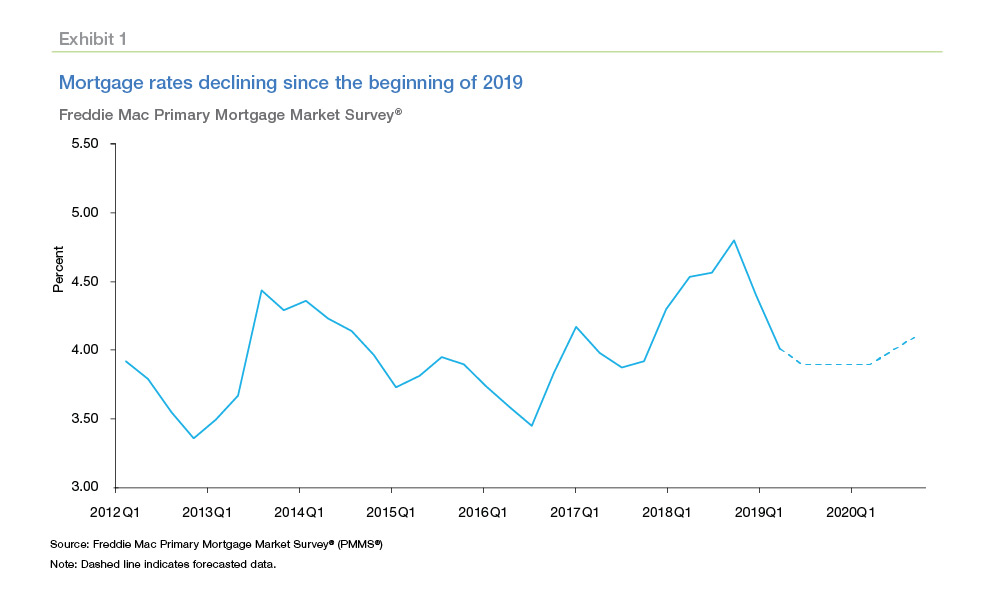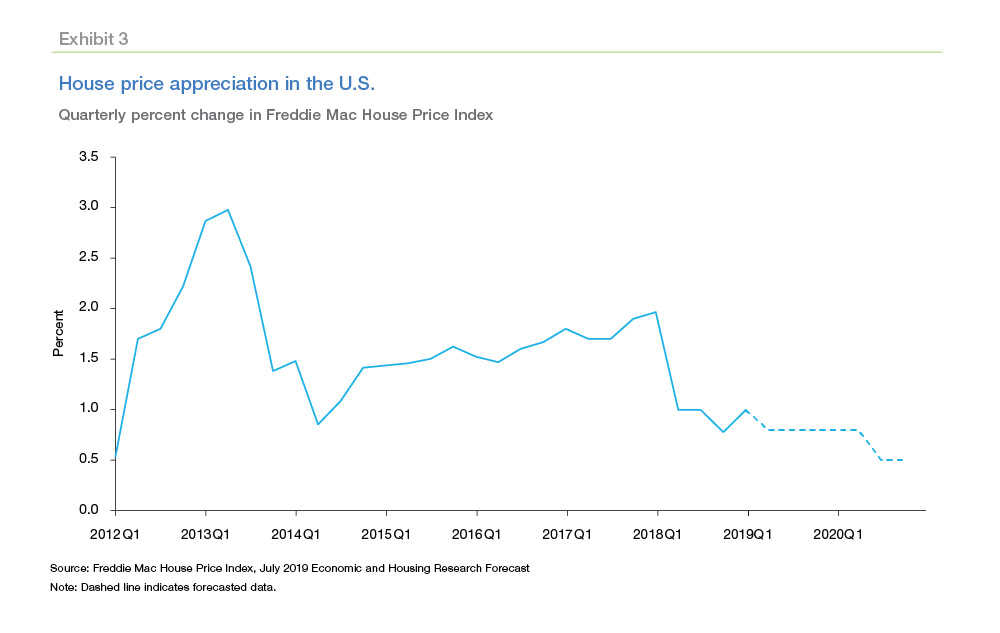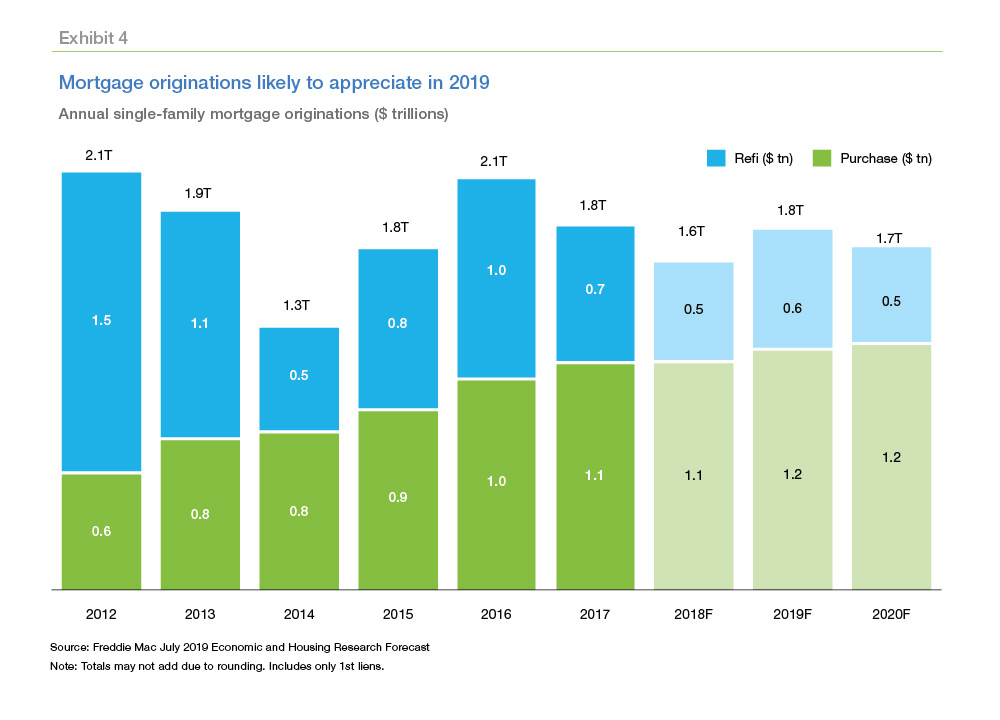The housing market has been looking slightly better over the last few month and Freddie Mac July economic report reflects that fact. They also maintain a fairly rosy picture of the economy as a whole.
They note that the 30-year fixed-rate mortgages (FRM) dipped below 4.0 percent at the end of May and has remained there "amid concerns over trade disputes, a possible economic slowdown, and market anticipation of a Federal Reserve interest rate cut." This has caused a spike in mortgage applications for both purchase and refinancing and they predict that low rates, along with a thriving labor market, will help sustain the housing market, not just short term, but for at least the next year and a half.
They have, in fact, revised down their quarterly forecasts for mortgage rates over that period, forecasting an annual rate for the 30-year fixed-rate mortgage of 4.1 percent this year and an even lower 4.0 percent in 2020.

As to other rates, while not predicting a cut in the Federal Funds rate after today's Federal Open Market Committee (FOMC) meeting, they still expect "cuts" in the second half of the year and project an effective rate of 2.3 percent in the third and fourth quarters with an average of 2.4 percent for the year, unchanged from their earlier forecast. The average next year will be 2.3 percent in 2020 and they see no further FOMC cuts.
The lower rates will turn investor interest towards more lucrative stocks and away from government bonds they say, and forecast that the 10-year Treasury rate will decline to 2.3 percent in 2019 and stay at the same level in 2020. Also, maintaining the spread between government bond yields, they see the 1-year Treasury rate to be 2.2 percent in both 2019 and 2020.
They say the strong homebuilder confidence and lower mortgage rates will lead to a recovery of housing starts and sales from their 2018 slump and that housing starts will end this year at 1.26 million and increase to 1.34 million in 2020. Home sales will be 6.0 million in 2019 due to the continuing shortage of inventory but will return to 2017 levels of 6.12 million next year.
The recent home price reports have sent mixed signals, but the report's authors expect home prices to rise by 3.4 percent this year. They have revised their expectations for next year down to a 2.6 percent appreciation rate.

Mortgage origination volumes have responded to lower mortgage rates and the economists have upgraded their June forecast for originations based on their lower expectations for rates this month. They expect the refinance share of originations to grow to 34 percent this year, declining to 28 percent next year. Purchase applications have seen a recent modest increase as homebuyers respond to lower rates and the forecast is for $1.8 trillion in originations this year and $1.7 trillion in 2020.

As to the larger economy, Freddie Mac's economists say trade tensions will have visible impact on second and third quarter GDP growth. "Without the short-term effects of tax cuts and fiscal stimulus we experienced in 2018, we forecast growth of 2.1 percent for full year 2019, decelerating to 1.8 percent in 2020."
Consumer prices will rise by 2.4 percent in the third quarter due to declining gasoline prices and weak wage growth, but Freddie Mac is holding to an earlier forecast of consumer price growth of 2.1 percent for the year and 2.0 percent in 2020.
Even with the fears of economic slowdown, the labor market continues to beat expectations and Freddie Mac says it expects it to remain strong. There has not been much change in workers' willingness to switch jobs, and businesses are holding on to their current workforce in a tight labor market. Considering the continued positive news regarding the labor market, the report has a lower unemployment rate forecast than earlier - 3.7 percent through the end of next year.







